Faux leather has gained immense popularity in recent years as a sustainable and cruelty-free alternative to genuine leather. As the demand for ethical and eco-friendly products continues to rise, so does the need for reliable faux leather suppliers. In this article, we will delve into the world of faux leather suppliers, exploring their role in meeting the market’s demands, key considerations when selecting suppliers, top suppliers in the industry, and the future outlook for this sustainable material. Understanding the Role of Faux Leather Suppliers: Faux leather suppliers play a crucial role in the supply chain by providing a range of faux leather products to various industries including fashion, automotive, furniture, and interior designs. These suppliers act as intermediaries between manufacturers and businesses, ensuring a steady and reliable supply of faux leather materials. Key Considerations When Selecting Faux Leather Suppliers: 1. Quality: The quality of faux leather is an essential factor to consider when choosing a supplier. A reputable supplier should offer a variety of high-quality faux leather products that closely resemble genuine leather in terms of appearance and texture. 2. Range of Products: Faux leather suppliers should have a diverse range of products to cater to different industries and applications. This includes options for different colors, finishes, thicknesses, and patterns to suit various design preferences. 3. Supply Chain Transparency: Eco-conscious consumers and businesses are increasingly concerned about the environmental impacts of their purchases. It is crucial to choose suppliers who can provide transparent information about the materials used in their faux leather production, ensuring they meet ethical and sustainable standards. 4. Certifications: Look for suppliers who hold certifications such as Bluesign, Oeko-Tex, or Global Organic Textile Standard (GOTS), as these demonstrate a commitment to responsible and safe manufacturing practices. Top Faux Leather Suppliers in the Industry: 1. Anzea Textiles: Anzea Textiles is a leading supplier of faux leather materials for the contract and hospitality industries. They offer a wide range of faux leather options, including their environmentally friendly PVC-Free faux leather collection. Anzea Textiles is known for their commitment to sustainability, quality, and innovative designs. 2. Ultrafabrics: Ultrafabrics is a global leader in the production of high-performance faux leather materials. Their products are popular in the automotive, aviation, hospitality, and healthcare sectors. With a focus on durability, stain resistance, and breathability, Ultrafabrics offers a wide range of colors and textures to meet the varying needs of their clients. 3. Stahl: Stahl is a prominent supplier of faux leather solutions for a wide range of industries.
leather
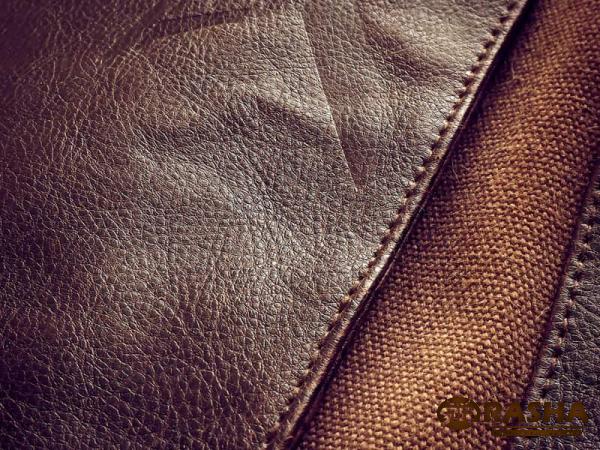 They are known for their innovative technologies that enable the production of faux leather materials with a low environmental impact, such as water-based polyurethanes. Stahl also places a strong emphasis on sustainability and has received several certifications in recognition of their efforts. 4. Toray Industries: Toray Industries is a multinational corporation that produces a wide range of materials, including faux leather. They are known for their Toray Ultrasuede®, a high-performance microfiber faux leather material that closely resembles genuine suede. Toray Industries prioritizes sustainability and has implemented various initiatives to reduce waste and carbon emissions in their production processes. The Future Outlook for Faux Leather Suppliers: The demand for faux leather is expected to continue to grow as consumers become increasingly conscious about sustainability and animal welfare. This presents significant opportunities for faux leather suppliers to expand their product offerings and improve their manufacturing processes. Technological advancements, such as the development of bio-based materials and innovative recycling methods, hold great potential for further enhancing the sustainability and quality of faux leather products. Conclusion: Faux leather suppliers play a vital role in meeting the rising demand for sustainable and cruelty-free alternatives to genuine leather. By considering factors such as quality, range of products, supply chain transparency, and certifications, businesses can choose reliable suppliers that align with their ethical and environmental values. With leading suppliers like Anzea Textiles, Ultrafabrics, Stahl, and Toray Industries pushing the boundaries of faux leather technology, the future looks promising for this eco-conscious and innovative industry.Exploring the World of Faux Leather Suppliers: A Comprehensive Overview I. Faux Leather Market Overview The market for faux leather has experienced substantial growth in recent years. The demand for ethical and sustainable alternatives to genuine leather has driven businesses and consumers to seek out faux leather products. Faux leather suppliers have capitalized on this demand, providing a wide range of products to various industries. This has created a highly competitive marketplace, with suppliers continuously striving to offer innovative and superior faux leather materials. II. Key Factors Influencing the Faux Leather Market Several factors have contributed to the growth of the faux leather market and influenced the strategies of suppliers within the industry: 1. Sustainability and Environmental Factors The increasing awareness of environmental issues has led to a shift in consumer preferences towards sustainable and eco-friendly materials. Faux leather, which reduces the need for animal-derived products, has emerged as a popular choice. Suppliers have responded by adopting more sustainable practices, such as using water-based polyurethanes and implementing recycling programs.
They are known for their innovative technologies that enable the production of faux leather materials with a low environmental impact, such as water-based polyurethanes. Stahl also places a strong emphasis on sustainability and has received several certifications in recognition of their efforts. 4. Toray Industries: Toray Industries is a multinational corporation that produces a wide range of materials, including faux leather. They are known for their Toray Ultrasuede®, a high-performance microfiber faux leather material that closely resembles genuine suede. Toray Industries prioritizes sustainability and has implemented various initiatives to reduce waste and carbon emissions in their production processes. The Future Outlook for Faux Leather Suppliers: The demand for faux leather is expected to continue to grow as consumers become increasingly conscious about sustainability and animal welfare. This presents significant opportunities for faux leather suppliers to expand their product offerings and improve their manufacturing processes. Technological advancements, such as the development of bio-based materials and innovative recycling methods, hold great potential for further enhancing the sustainability and quality of faux leather products. Conclusion: Faux leather suppliers play a vital role in meeting the rising demand for sustainable and cruelty-free alternatives to genuine leather. By considering factors such as quality, range of products, supply chain transparency, and certifications, businesses can choose reliable suppliers that align with their ethical and environmental values. With leading suppliers like Anzea Textiles, Ultrafabrics, Stahl, and Toray Industries pushing the boundaries of faux leather technology, the future looks promising for this eco-conscious and innovative industry.Exploring the World of Faux Leather Suppliers: A Comprehensive Overview I. Faux Leather Market Overview The market for faux leather has experienced substantial growth in recent years. The demand for ethical and sustainable alternatives to genuine leather has driven businesses and consumers to seek out faux leather products. Faux leather suppliers have capitalized on this demand, providing a wide range of products to various industries. This has created a highly competitive marketplace, with suppliers continuously striving to offer innovative and superior faux leather materials. II. Key Factors Influencing the Faux Leather Market Several factors have contributed to the growth of the faux leather market and influenced the strategies of suppliers within the industry: 1. Sustainability and Environmental Factors The increasing awareness of environmental issues has led to a shift in consumer preferences towards sustainable and eco-friendly materials. Faux leather, which reduces the need for animal-derived products, has emerged as a popular choice. Suppliers have responded by adopting more sustainable practices, such as using water-based polyurethanes and implementing recycling programs.
Specifications of leather
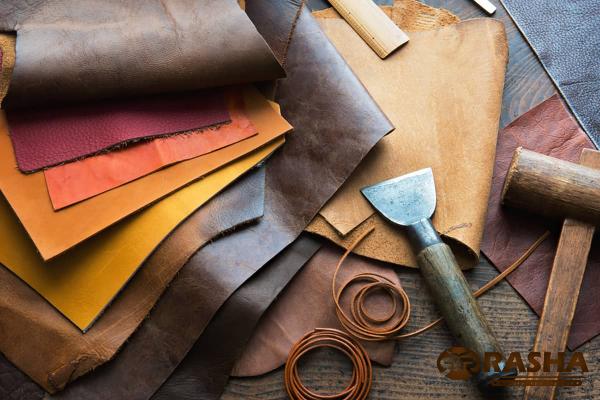 2. Technological Advancements Advancements in manufacturing technologies have significantly improved the quality and range of faux leather products. Suppliers have focused on enhancing the durability, breathability, and texture of their materials to closely mimic genuine leather. Research and development efforts continue to drive innovation within the industry. 3. Changing Consumer Trends Consumer attitudes towards animal welfare and ethical sourcing have influenced the demand for faux leather. As more consumers seek out vegan and cruelty-free options, suppliers have experienced a surge in interest from fashion, automotive, and interior design industries. III. Choosing the Right Faux Leather Suppliers: Considerations for Businesses When selecting a faux leather supplier, businesses need to carefully evaluate their options. The following considerations can help in making an informed decision: 1. Quality and Authenticity Ensure that the supplier offers faux leather products that closely resemble genuine leather in terms of appearance, texture, and finish. This involves examining samples and checking their product range to assess the quality of their materials. 2. Product Range and Customization Options Look for suppliers that offer a wide range of colors, finishes, and patterns to cater to diverse design preferences. Flexibility in customization is essential for businesses that require unique faux leather variations for their products. 3. Supply Chain Transparency Ethical and sustainable sourcing practices are key considerations for many consumers and businesses today. Choose suppliers who can provide transparent information about their manufacturing processes, ensuring compliance with ethical and environmental standards. 4. Certifications and Compliance Certifications such as Bluesign, Oeko-Tex, and Global Organic Textile Standard (GOTS) serve as indicators of a supplier’s commitment to responsible manufacturing practices. These certifications demonstrate adherence to specific benchmarks related to sustainability and safety. 5. Reliability and Timely Delivery Reliable suppliers should have a track record of consistently delivering orders on time. Timely delivery is crucial for businesses to maintain production schedules and meet customer demands. IV. Top Faux Leather Suppliers in the Industry: An Overview The faux leather industry is home to several top suppliers who have established themselves as leaders in the market. Here are some notable companies: 1. Anzea Textiles: Anzea Textiles specializes in providing faux leather materials for the contract and hospitality industries. Their products are known for their durability, sustainability, and innovative designs. Anzea Textiles offers a diverse range of faux leather options, including their PVC-Free collection, which is eco-friendly and complies with stringent environmental regulations.
2. Technological Advancements Advancements in manufacturing technologies have significantly improved the quality and range of faux leather products. Suppliers have focused on enhancing the durability, breathability, and texture of their materials to closely mimic genuine leather. Research and development efforts continue to drive innovation within the industry. 3. Changing Consumer Trends Consumer attitudes towards animal welfare and ethical sourcing have influenced the demand for faux leather. As more consumers seek out vegan and cruelty-free options, suppliers have experienced a surge in interest from fashion, automotive, and interior design industries. III. Choosing the Right Faux Leather Suppliers: Considerations for Businesses When selecting a faux leather supplier, businesses need to carefully evaluate their options. The following considerations can help in making an informed decision: 1. Quality and Authenticity Ensure that the supplier offers faux leather products that closely resemble genuine leather in terms of appearance, texture, and finish. This involves examining samples and checking their product range to assess the quality of their materials. 2. Product Range and Customization Options Look for suppliers that offer a wide range of colors, finishes, and patterns to cater to diverse design preferences. Flexibility in customization is essential for businesses that require unique faux leather variations for their products. 3. Supply Chain Transparency Ethical and sustainable sourcing practices are key considerations for many consumers and businesses today. Choose suppliers who can provide transparent information about their manufacturing processes, ensuring compliance with ethical and environmental standards. 4. Certifications and Compliance Certifications such as Bluesign, Oeko-Tex, and Global Organic Textile Standard (GOTS) serve as indicators of a supplier’s commitment to responsible manufacturing practices. These certifications demonstrate adherence to specific benchmarks related to sustainability and safety. 5. Reliability and Timely Delivery Reliable suppliers should have a track record of consistently delivering orders on time. Timely delivery is crucial for businesses to maintain production schedules and meet customer demands. IV. Top Faux Leather Suppliers in the Industry: An Overview The faux leather industry is home to several top suppliers who have established themselves as leaders in the market. Here are some notable companies: 1. Anzea Textiles: Anzea Textiles specializes in providing faux leather materials for the contract and hospitality industries. Their products are known for their durability, sustainability, and innovative designs. Anzea Textiles offers a diverse range of faux leather options, including their PVC-Free collection, which is eco-friendly and complies with stringent environmental regulations.
buy leather
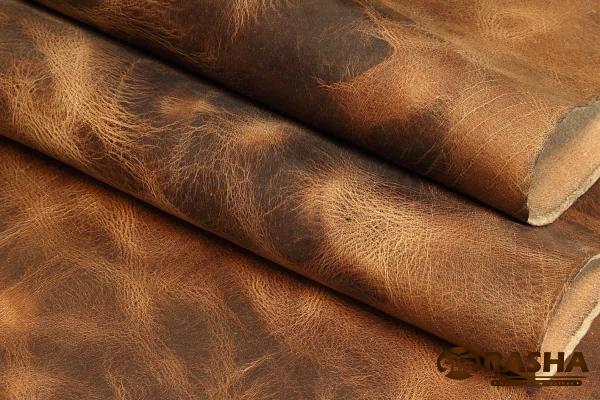 2. Ultrafabrics: Ultrafabrics has emerged as a global leader in producing high-performance faux leather materials. Their products are widely used in the automotive, aviation, hospitality, and healthcare industries. Ultrafabrics’ faux leather materials are known for their exceptional durability, stain resistance, and breathability. With a focus on performance, they offer a wide range of colors and textures to meet the specific requirements of their clients. 3. Stahl: Stahl is renowned for its comprehensive range of faux leather solutions, catering to a wide range of industries. They specialize in developing innovative technologies that minimize the environmental impact of faux leather production. For instance, Stahl has introduced water-based polyurethanes that significantly reduce volatile organic compound emissions. They have also implemented sustainable sourcing practices and have received certifications such as the Leather Working Group’s Gold rating for their manufacturing facilities. 4. Toray Industries: Toray Industries, a multinational corporation, offers a broad range of materials, including faux leather. Their Toray Ultrasuede® stands out as a high-performance microfiber material that closely resembles genuine suede. Toray Industries prioritizes sustainability and has implemented various initiatives to reduce waste and carbon emissions in their production processes. V. The Future Outlook for Faux Leather Suppliers The future of faux leather suppliers appears promising, given the increasing demand for sustainable and cruelty-free alternatives. Several factors are likely to shape the industry’s trajectory: 1. Growing Environmental Awareness: As consumers become more conscious of the environmental impact of their choices, the demand for eco-friendly products like faux leather is expected to increase further. Suppliers will be driven to develop more sustainable production methods and explore bio-based materials. 2. Advancements in Technology: Ongoing research and development efforts will lead to continuous improvement in faux leather quality, texture, and durability. Innovations such as biodegradable faux leather and more efficient recycling processes hold substantial potential for the industry. 3. Collaboration and Partnerships: Collaboration among suppliers, manufacturers, and other stakeholders can drive the development of new materials and sustainable solutions. Joint initiatives focusing on R&D, waste reduction, and recycling will contribute to the growth and resilience of the faux leather industry. Conclusion: Faux leather suppliers play a vital role in meeting the growing demand for sustainable and cruelty-free alternatives to genuine leather. By carefully considering factors such as quality, product range, supply chain transparency, and certifications, businesses can choose reliable suppliers that align with their environmental and ethical values. With leading suppliers like Anzea Textiles, Ultrafabrics, Stahl, and Toray Industries driving innovation within the industry, the future looks promising for faux leather as a sustainable and versatile material.
2. Ultrafabrics: Ultrafabrics has emerged as a global leader in producing high-performance faux leather materials. Their products are widely used in the automotive, aviation, hospitality, and healthcare industries. Ultrafabrics’ faux leather materials are known for their exceptional durability, stain resistance, and breathability. With a focus on performance, they offer a wide range of colors and textures to meet the specific requirements of their clients. 3. Stahl: Stahl is renowned for its comprehensive range of faux leather solutions, catering to a wide range of industries. They specialize in developing innovative technologies that minimize the environmental impact of faux leather production. For instance, Stahl has introduced water-based polyurethanes that significantly reduce volatile organic compound emissions. They have also implemented sustainable sourcing practices and have received certifications such as the Leather Working Group’s Gold rating for their manufacturing facilities. 4. Toray Industries: Toray Industries, a multinational corporation, offers a broad range of materials, including faux leather. Their Toray Ultrasuede® stands out as a high-performance microfiber material that closely resembles genuine suede. Toray Industries prioritizes sustainability and has implemented various initiatives to reduce waste and carbon emissions in their production processes. V. The Future Outlook for Faux Leather Suppliers The future of faux leather suppliers appears promising, given the increasing demand for sustainable and cruelty-free alternatives. Several factors are likely to shape the industry’s trajectory: 1. Growing Environmental Awareness: As consumers become more conscious of the environmental impact of their choices, the demand for eco-friendly products like faux leather is expected to increase further. Suppliers will be driven to develop more sustainable production methods and explore bio-based materials. 2. Advancements in Technology: Ongoing research and development efforts will lead to continuous improvement in faux leather quality, texture, and durability. Innovations such as biodegradable faux leather and more efficient recycling processes hold substantial potential for the industry. 3. Collaboration and Partnerships: Collaboration among suppliers, manufacturers, and other stakeholders can drive the development of new materials and sustainable solutions. Joint initiatives focusing on R&D, waste reduction, and recycling will contribute to the growth and resilience of the faux leather industry. Conclusion: Faux leather suppliers play a vital role in meeting the growing demand for sustainable and cruelty-free alternatives to genuine leather. By carefully considering factors such as quality, product range, supply chain transparency, and certifications, businesses can choose reliable suppliers that align with their environmental and ethical values. With leading suppliers like Anzea Textiles, Ultrafabrics, Stahl, and Toray Industries driving innovation within the industry, the future looks promising for faux leather as a sustainable and versatile material.

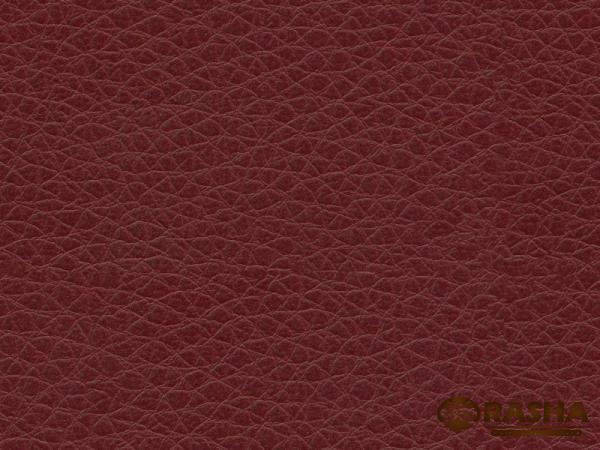
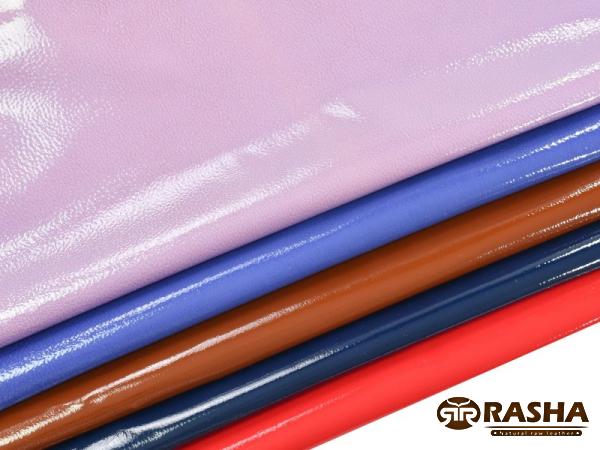
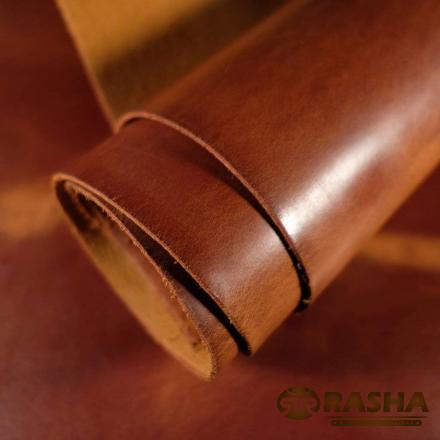
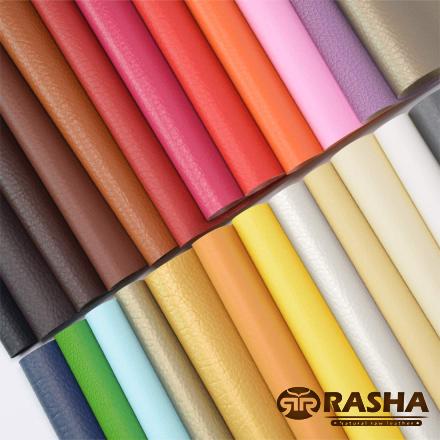
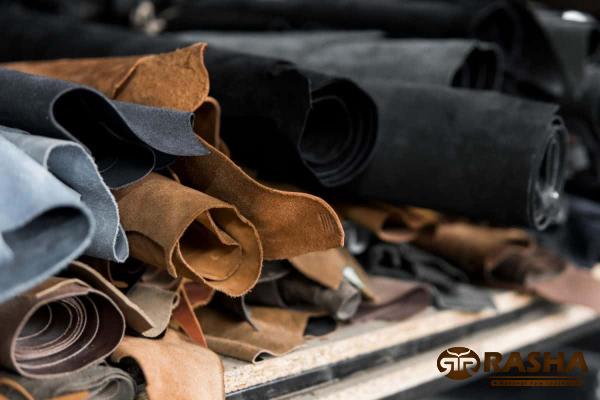
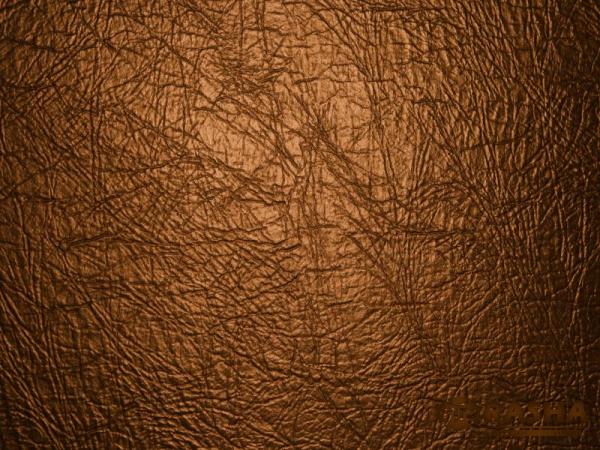
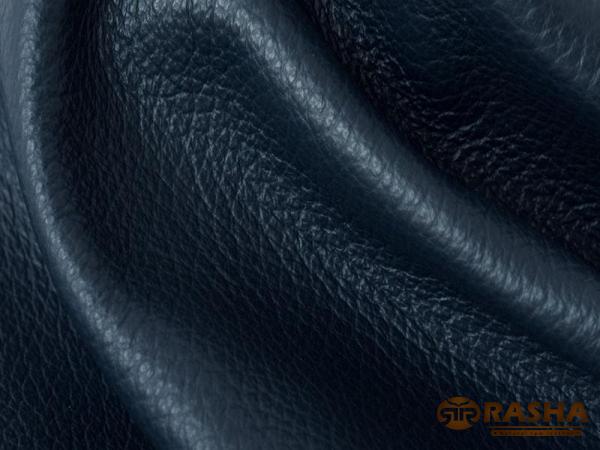
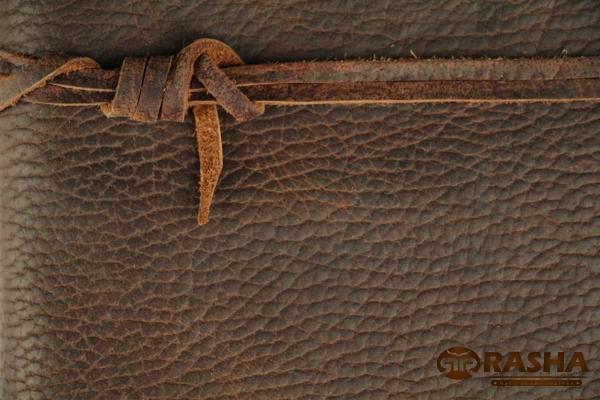
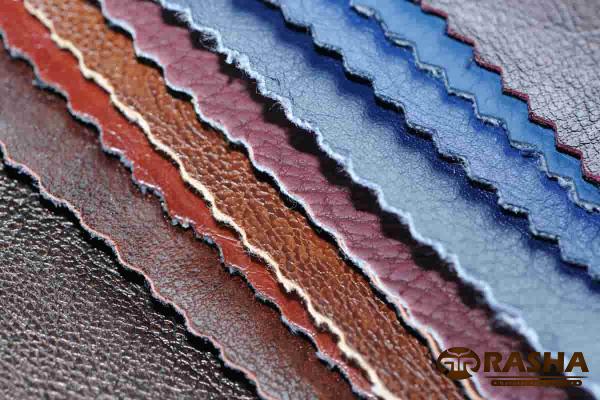
Your comment submitted.